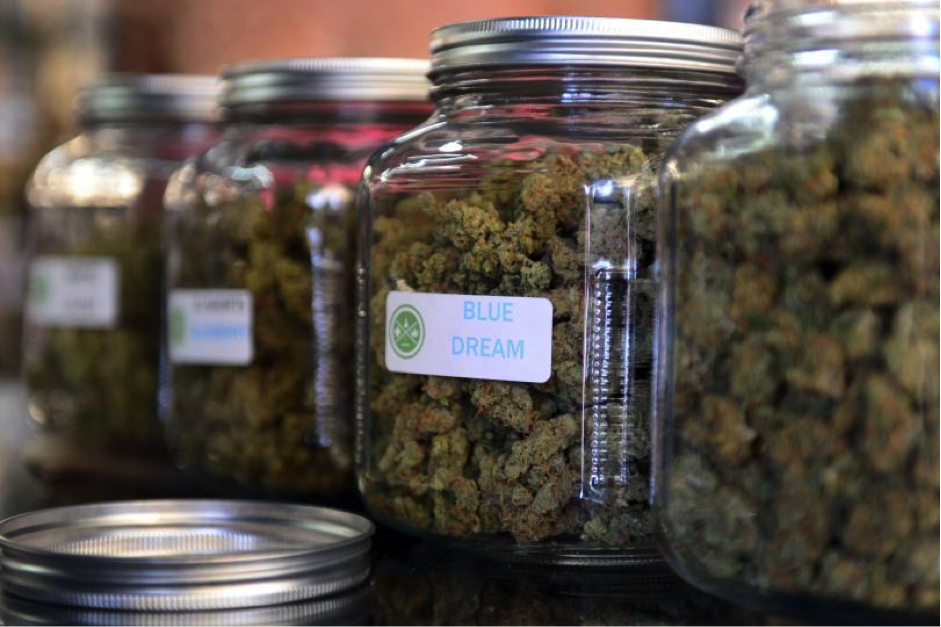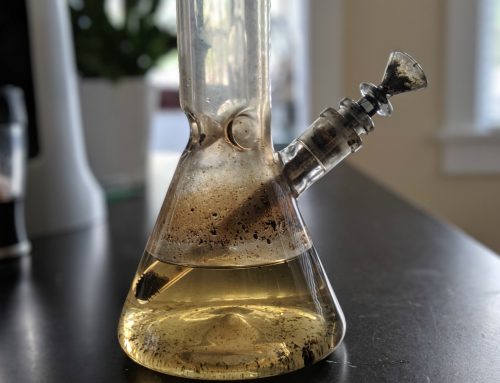One of the things we’ve learned since various North American states like Massachusetts decided to take cannabis to the polls is the fact that legalization isn’t quite as quick and easy as it seems. Even in instances where recreational or medicinal cannabis romped home with a decisive victory in the vote, actually getting things up and running tends to take time. Which is particularly true when it comes to the commercial and industrial side of things, with local legislators often finding it more difficult than expected to get the required rules and regulations in place.
Massachusetts Cannabis Bill Delayed
For the people of Massachusetts, it’s looking like things are no different. In a move that goes completely against the will of 1.8 million voters who wanted to see recreational cannabis legalized, a bill was passed on Wednesday morning by the Massachusetts House and Senate that will mean a delay in the opening of recreational cannabis stores of an additional half-year. The bill was passed behind closed doors and with relatively little fanfare, resulting in a new official opening date for recreational cannabis stores in Massachusetts of the summer of 2018. Recreational cannabis may have been given the official green light in November 2016, but it’s now looking like it’ll be close to two years before sales of recreational cannabis begin state-wide.
Unsurprisingly, the cannabis community and those who campaigned to get Question 4 enacted in the first place are not exactly happy with the result. Jim Borghesani being one such example, warned that because of such delays and unnecessary red tape, Massachusetts now finds itself in a rather bizarre and confusing position, where it remains illegal to sell marijuana but is perfectly legal to possess and use it.
“We are very disappointed that the Legislature has decided to alter Question 4 in an informal session with very little notice regarding proposed changes,” Borghesani told the Boston Globe.
“We’re willing to consider technical changes to Question 4 so that the new law is implemented in a timely and responsible manner. However, our position remains that the measure was written with careful consideration regarding process and timelines and that no major legislative revisions are necessary.”
No Public Notice Given
While Senate President Stanley C. Rosenberg and Republican Minority Leader Bruce Tarr were present at the session, it garnered little to no public notice whatsoever and seemed to slip by behind the scenes. Critics have argued that the voice of the people was underrepresented at the session, as it would have taken just a single objection by one member to stop the legislation being passed. No opposition was voiced during the session, which critics have argued is simply due to the fact that the senate chamber was almost empty at the time.
In one sense though, it doesn’t come as a particularly huge surprise. It’s no secret that the state’s top cannabis regulator, State Treasurer Deborah B. Goldberg, has made it clear on numerous occasions that she would like to see a delay implemented on the sale of recreational cannabis. She believes this is necessary as a means by which to allow sufficient time to create a solid and workable legislative system to control and regulate the safe and commercial distribution of cannabis.
Question 4 Already Legislated For Safe Use
Fair justification perhaps, but critics argue that Question 4 itself already contains more than enough safety and security measures and provisions, which focus aggressively on ensuring that only adults aged 21 years or older are able to access cannabis in Massachusetts. Everything was outlined clearly in the text of the document, including the intended start date of legal recreational cannabis sales of January 1, 2018. As such, critics are not convinced that the delay has any value whatsoever and is simply a move by those looking to keep recreational cannabis off the streets for as long as possible.
Nevertheless, actually keeping to this initial date may not have proved particularly realistic in the first place, when considering the examples set elsewhere. So far, Colorado managed the best by quickly and smoothly implementing its commercial cannabis sales legislation, which was largely due to the fact that they already had much of the framework drawn up ahead of time. It took Colorado 13 months, Washington State took 18 months to get things sorted and it was over two years before things got up and running in Alaska.
As such, being forced to hold out until the summer of 2018 could be seen as relatively standard and predictable. If a little on the annoying side, admittedly.
Cannabis Expected to be Lucrative Venture
Still, when marijuana shops finally do a touchdown in Massachusetts, it will represent the beginning of a brand new and incredibly lucrative industry for the state. In terms of how big things are expected to get, researchers believe that Massachusetts – Boston in particular – will become a very big deal to say the least. In fact, there are some who have gone so far as to say that Boston has every potential to become the new cannabis capital of the world, at least for a temporary period of time.
That’s according to Troy Dayton, CEO of ArcView Market Research, who sees the state’s cannabis industry surpassing the hallowed $1 billion mark by the end of the current decade. Given the fact that Boston will become the first major city on the East Coast to permit recreational marijuana and have its own contingency of cannabis shops set up and running, it will be the most monumental magnet for tourists across the region. For the most part, it’s a simple case of convenience. For anyone who lives in any of the surrounding states in the region Massachusetts, heading over the state line to indulge in recreational cannabis will be far faster, easier and cheaper than heading across the country to other recreational cannabis hotspots.
“Unlike other places where cannabis is legal, Boston is within driving distance of many of the most populous places in America,” Dayton says.
Massachusetts To Be Eastern Bellwether?
Not only this, but it is widely predicted that exactly what takes place in Massachusetts over the coming months and years will have a direct impact on the way in which neighbouring states revisit the idea of legalizing recreational cannabis for themselves. Just as California is likely to be a bellwether state for the western US, Massachusetts could prove to be the same for the East Coast.
Of course, officials are keen to remind the public in general that the specifics in terms of cannabis regulation and indeed the Cannabis Control Commission itself do not actually exist yet. As such, there is still plenty of time for things to change in the months/years between now and when recreational cannabis hits the shelves – not to mention the impact the Trump Administration could have on cannabis use across the entire country.
“The full regulatory structure and key program details of the adult use market remain to be determined, and the market could take a few different directions depending on the actions of the Massachusetts Cannabis Control Commission and local municipalities across the state,” the report reads.
“However, the broad parameters of the law create an opportunity for an open and expansive market.”
What do you think to the delays? Let us know your thoughts in the comments below.
Related Articles













